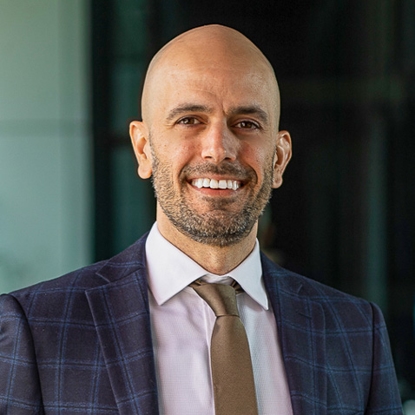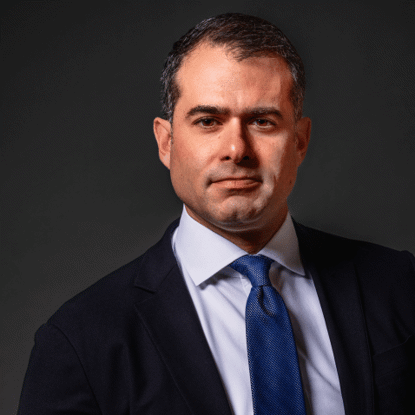
Dallas Traumatic Brain Injury Lawyer
Results-Oriented Legal Representation for Traumatic Brain Injury Victims in Texas
A traumatic brain injury (TBI) is a devastating, often permanent, and life-altering event. From profound cognitive challenges to emotional and financial hardships, a TBI can profoundly impact victims and their entire families. These catastrophic injuries demand immediate and long-term care, frequently resulting in permanent disability and impairment. When facing such a severe personal injury, you need a Dallas brain injury lawyer who understands the immense stakes and is prepared to fight relentlessly for your future.
At MR.LAW Accident & Injury Attorneys, our experienced Dallas traumatic brain injury attorneys are dedicated to securing maximum compensation for victims of negligence and their families. We specialize in complex, high-stakes cases like TBIs, leveraging our comprehensive knowledge of head injury claims, from common causes and symptoms to proving negligence and recovering all available damages. Our firm's established track record of securing significant results in devastating personal injury cases means we are uniquely equipped to handle the intricacies of your TBI claim. We are committed to protecting your rights and ensuring you receive the comprehensive medical attention and financial recovery necessary to move forward.
If you or a loved one has suffered a head injury due to negligence, we encourage you to schedule a free and confidential case evaluation by calling (469) 689-0200 or contacting us online. Let our fearless Dallas brain injury attorneys help you focus on healing while we fight for the justice you deserve.
Why Choose MR.LAW: Your Trusted Dallas Brain Injury Attorney
Choosing the right legal partner after a traumatic brain injury is a critical decision. At MR.LAW Accident & Injury Attorneys, our "Until Victory Always" philosophy guides our every action, ensuring unparalleled advocacy for TBI victims and their families. Here’s why we are the premier choice for your brain injury case:
- Fearless & Relentless Advocacy in Catastrophic Cases: Traumatic brain injuries are among the most challenging personal injury claims. We don't shy away from complex, high-stakes litigation against powerful insurance companies or negligent parties. Our commitment is to relentlessly pursue justice, no matter the adversary.
- Proven Results in Severe Injury Claims: We have a demonstrated history of securing substantial financial recoveries, including for catastrophic injuries. Our track record of tens of millions recovered for clients reflects our dedication to maximizing compensation for lifelong care and damages associated with TBIs.
- Exceptional Legal Talent & Specialized TBI Expertise: Our team, led by award-winning attorneys Damon Mathias and Ori Raphael, brings diverse experience, including insights from the insurance defense side. This unique perspective allows us to anticipate and counter opposing strategies, ensuring a comprehensive approach to your complex brain injury claim.
- Client-Centric Partnership & Compassionate Support: We understand the profound impact a TBI has on a family. We offer a "high-touch" approach, providing direct attorney access, personalized attention, and constant communication. Our goal is to alleviate your stress, allowing you to focus entirely on recovery.
- No Fees Unless We Win: We operate on a contingency fee basis for all personal injury cases. This means you pay absolutely no upfront legal fees, and we only get paid if we secure a financial recovery for you. This aligns our success directly with yours, removing financial risk.
- Comprehensive Case Management for Lifelong Needs: TBI cases require meticulous attention to detail. We thoroughly investigate, collect evidence, calculate all damages—including future medical care, lost earning capacity, and pain and suffering—and are fully prepared for aggressive negotiation or trial to ensure your long-term financial stability.
What to Expect During Your Brain Injury Case
Embarking on a legal journey after a traumatic brain injury can feel overwhelming. At MR.LAW, we demystify the process through our comprehensive case management and client-centric approach. Here’s what you can expect when partnering with our Dallas brain injury attorneys:
- Thorough Case Evaluation: We meticulously review medical and accident reports to build a strong foundation for your claim.
- Expert Collaboration: Our team works closely with medical professionals to validate the full extent of your injuries and with economic experts to accurately quantify all financial losses, ensuring all potential compensations are accurately pursued.
- Navigating Court Procedures: We guide you through every stage of the legal process, from pre-trial motions to settlement discussions, which can span several months. We are always prepared for trial if it's what it takes to achieve justice.
- Clear Communication & Transparency: We prioritize keeping you informed and prepared, utilizing cutting-edge technology to maintain seamless client communication and case transparency throughout your journey.
Don’t pay the price for someone else’s negligence! Call (469) 689-0200 to schedule a free consultation with our TBI attorneys in DFW. Se habla Español.
trust MR.LAW Accident & Injury Attorneys
don't stress. let us handle your case so you can focus on recovering.

-
What Is a Traumatic Brain Injury?
A traumatic brain injury (TBI) is damage to the brain caused by a bump, blow, or jolt to the head or a penetrating head injury. TBIs can result in a variety of symptoms, including headaches, dizziness, confusion, memory loss, and difficulty concentrating. The severity of a TBI can range from mild to severe, and the long-term effects can vary widely.
-
Common Causes of Traumatic Brain Injuries
Many brain injuries result from negligent actions or intentional misconduct. In these types of cases, “negligence” means the other person had no intention of causing injury to someone else and could apply in scenarios involving accidents. The term “intentional” means there was malice and intent to cause injury, like during an assault.
Intentional acts often come with criminal charges, but these charges are separate and apart from lawsuits brought on the civil side. Our Dallas traumatic brain injury lawyers can help you take civil legal action against a party that caused harm through negligence or intentional violence in the form of a personal injury lawsuit.
Some of the most common causes of traumatic brain injuries include:
- Car accidents
- Bicycle accidents
- Boating accidents
- Truck accidents
- Motorcycle accidents
- Pedestrian accidents
- Slips and falls
- Sports injuries
- Defective products
- Climbing accidents
- Medical malpractice
- Workplace accidents
- Violent acts
Keep in mind that brain injuries can happen even in incidents involving seemingly low speeds and heights. A simple fall can trigger a traumatic brain injury if the victim’s head strikes a sharp corner or surface, for example.
-
How Are TBIs Diagnosed?
- Medical Evaluation: After an accident, even if you feel fine, it's essential to seek medical care. A doctor can assess your condition and monitor for potential symptoms.
- Medical History and Physical Exam: Your doctor will likely ask about your symptoms, loss of consciousness, and any head injuries. They may also perform a neurological exam to assess:
- Reflexes
- Sensation
- Cranial nerves
- Mental status
- Coordination and balance
- Autonomic nervous system function
- Imaging Tests: Imaging tests, such as CT scans and MRIs, can help visualize brain damage, bleeding, or swelling.
-
How Are Traumatic Brain Injuries Treated?
The treatment of traumatic brain injuries can vary significantly depending on the severity of the injury. Our team at MR.LAW Accident & Injury Attorneys wants you to get the short- and long-term care you need to achieve the best possible recovery, which is why our Dallas traumatic brain injury lawyers can fight to recover full and fair compensation from the party responsible for your injury.
Mild traumatic brain injuries, such as concussions, often require rest and over-the-counter pain relief to manage symptoms like headaches. Patients are usually advised to avoid strenuous activities and monitor their symptoms closely. In more severe cases, hospitalization may be necessary. Healthcare professionals may use imaging tests like CT scans or MRIs to assess the extent of brain damage and identify any complications, such as brain swelling or bleeding.
Once a traumatic brain injury has been diagnosed, initial treatment may involve stabilizing the patient to support proper oxygen flow to the brain and maintaining blood pressure. Surgery may be necessary to repair fractures, remove blood clots, or relieve pressure caused by swelling. Medications can also play a crucial role, with doctors prescribing diuretics to reduce fluid buildup, anticonvulsants to prevent seizures, and coma-inducing drugs to reduce the brain's need for oxygen and nutrients.
Rehabilitation aims to help traumatic brain injury victims regain lost functions and improve their quality of life. This may include physical therapy to restore movement and strength, occupational therapy to help with daily activities, and speech and language therapy to address communication issues. Psychological support is also essential, as traumatic brain injuries frequently trigger or contribute to mental health conditions like depression or anxiety.
-
How Long Do I Have to File a Traumatic Brain Injury Claim in Texas?
In Texas, the statute of limitations for filing a personal injury claim, including those for traumatic brain injuries, is generally two years from the date of the injury. This means you have a two-year window to take legal action against the responsible party and seek compensation for damages.
However, several factors can influence this deadline. For example, if your traumatic brain injury was discovered well after the accident that caused the initial injury, the statute of limitations might begin from the date of discovery rather than the date of the incident. Our Dallas traumatic brain injury attorneys can help you understand how much time you have to start the legal process.
-
Recovering Damages in a Texas Traumatic Brain Injury Claim
The necessary medical and rehabilitative care following a traumatic brain injury can be extensive and lifelong. These injuries take their toll on the victim and the supporting family members. The costs and the experience of these are known as damages, and these damages are compensable. When a person sustains an injury resulting from the act of another, then the injured party has the right to seek a damage award from the person responsible for the accident.
There are two categories of damage that an injured party can seek: economic and non-economic. It is the intent of a damage award to put the injured party back in a comparable financial position as though the accident and injury did not occur.
Economic damages are the out-of-pocket costs and expenses resulting from the injury. This can include lost wages, property damage, reduced earning capacity, and healthcare costs. These expenses are proven with tangible written evidence like receipts, pay stubs, and estimates for property damage.
The non-economic damages cannot be proven with tangible evidence, but these damages are still real and have value. These damages are the emotional and psychological pain suffered by the injured party. The presence of this type of suffering is supported by personal journals and the testimony of expert witnesses. It generally takes the knowledge of a seasoned personal injury attorney to accurately assess and argue the value of non-economic damages.
There is another category of damages called punitive damages. However, punitive damages are rarely awarded in a personal injury claim unless an intentional act is proven. The intent of this damage award is to punish the responsible party as opposed to compensating the victim.
It is the total value of the economic and non-economic damages that comprise the value of a claim. Properly valuing a brain injury claim is incredibly important, as the lifetime costs associated with these injuries are significant.
Put another way, as an accident victim, you only get one chance at financial recovery. If you accept a settlement offer that is inadequate for your needs, you cannot come back later and ask for more. Your attorney must fully understand the extent of your injury, what your current and future medical needs will be, and accurately calculate what financial compensation you need to be made whole.
We understand that there is no amount of compensation that can fully place you in the position you were in prior to the accident. A lawsuit or settlement can, however, provide the funds needed to pay for medical treatment and help you and your family move forward.
-
Types of Traumatic Brain Injuries (TBIs)
Traumatic Brain Injuries (TBIs) are categorized by their severity: mild, moderate, or severe. Here are the primary types of TBIs:
Primary Injuries
- Concussion: A mild TBI causing temporary brain function impairment.
- Diffuse Axonal Injury (DAI): A severe TBI damaging nerve fibers throughout the brain.
- Penetrating Head Injury: A TBI caused by an object piercing the skull and entering the brain.
Secondary Injuries
These develop after the initial injury and can worsen brain damage:
- Brain Swelling: Increased pressure within the skull damages brain tissue.
- Bleeding: Internal bleeding leads to blood clots and further brain damage.
- Infection: Infections can occur if the brain is exposed to bacteria or viruses.
Other Types of TBI
- Contusions: Bruises on the brain caused by a forceful impact.
- Diffuse Axonal Injuries (DAIs): Nerve cells shear or stretch, damaging nerve axons.
- Hematomas: Blood clots form from ruptured blood vessels, potentially pressuring the brain.
- Second Impact Syndrome: Can occur after repeated head or brain injuries.
- Hemorrhages: Bleeding in or around the brain tissue.
-
Symptoms of a TBI
Common short-term symptoms of a traumatic brain injury include:
- Severe headache
- Loss of consciousness
- Nausea or vomiting
- Blurred vision
- Dizziness
- Seizures
- Sensitivity to light or sound
- Difficulty with balance and coordination
- Confusion
- Slurred speech
The location of the trauma to the head will determine the lasting – and often permanent – health impacts.
The delayed symptoms can include:
- Persistent headache
- Fatigue
- Difficulty concentrating
- Memory problems
- Mood changes
- Sensitivity to light or sound
- Changes in sleep patterns
- Changes in behavior or personality
Why TBIs Can Go Undetected
Many TBIs, particularly mild ones, may not have immediate or obvious symptoms. This can lead to delayed diagnosis and treatment. Symptoms can develop gradually, making it difficult to recognize the connection to a head injury.
The Importance of Early Diagnosis and Treatment
If you suspect you or someone you know has suffered a TBI, it is crucial to seek medical attention promptly. Early diagnosis and treatment can help minimize long-term consequences.
-
What Steps Should I Take After a Traumatic Brain Injury?
The immediate steps after a brain injury are crucial for your health and potential legal claim:
- Seek Immediate Medical Attention: Even if symptoms seem mild, a thorough medical evaluation is vital to assess and document the injury. This documentation is critical for legal proceedings.
- Contact a Dallas Brain Injury Lawyer: Speak with an experienced attorney as soon as possible. They can evaluate your case, guide you through your legal options, and begin the comprehensive case management process.
- Gather Evidence: Collect photos from the incident scene, witness statements, and police reports.
- Document All Expenses: Keep detailed records of all medical treatments, bills, and related expenses.
-
How Does Comparative Negligence Affect My Case?
In Texas, the comparative negligence rule can impact your compensation. If you are found partially at fault for the incident, your recoverable damages may be reduced by your percentage of fault. At MR.LAW, our strategy focuses on minimizing any attributed client fault through meticulous evidence collection and aggressive argumentation, aiming to maximize the compensation you receive, aligning with our "Maximizing Your Recovery" philosophy.

-
"Attorney Raphael & Attorney Mathias are both very forthcoming & handle each case with care!"I have worked with this office on many different life care plans for personal injury cases and each time it’s been wonderful. Attorney Raphael and Attorney Mathias are both very forthcoming and handle each case with care. I would definitely recommend them!- Brandy C.
-
"Damon took my case when others would not consider it."
Damon is the one attorney who took my case when others would not consider it. He is good at explaining the next steps and possible outcomes. Professionalism shows through in all he does. I recommend him for your legal matter.
- Carolyn -
"Mr. Mathias went above and beyond for me!"
Mr. Mathias went above and beyond when I got in an automobile accident making the situation stress free. He allowed me to concentrate on getting a new vehicle and getting the appropriate treatment instead of worrying about medical bills and settlements.
- James -
"Truly amazing attorney!"
Truly amazing Attorney! This guy went above and beyond my expectations, from a broken wired up jaw. To a well deserved settlement. Thanks again!
- S. Plowden -
"Better outcome than imagined."
MR.LAW Accident & Injury Attorneys handled our case well and gave us a better outcome than we could have ever imagined. Thanks to Damon, Ori and their entire team!
- Eric B. -
"Attorney Ori Raphael fights for you!"Ori gives it his all to fight for you!- Amir A
-
"Hire these guys!"These guys are great! Ori really went above and beyond and every time I needed good advice or help, he was there for me.- R.J.
-
"Mr. Raphael was very helpful and responsive to our needs!"Mr. Raphael was very helpful and responsive to our needs. He provided excellent service with polite,gentle and sensitive care,from the time he greeted us all through the process. I felt very confident trusting him with our case and he came through for us and got us more than we imagined.- Avi P.


